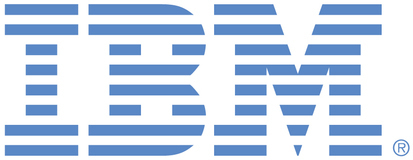
This portal is to open public enhancement requests against the products and services belonging to IBM Sustainability Software. To view all of your ideas submitted to IBM, create and manage groups of Ideas, or create an idea explicitly set to be either visible by all (public) or visible only to you and IBM (private), use the IBM Unified Ideas Portal (https://ideas.ibm.com).
Shape the future of IBM!
We invite you to shape the future of IBM, including product roadmaps, by submitting ideas that matter to you the most. Here's how it works:
Search existing ideas
Start by searching and reviewing ideas and requests to enhance a product or service. Take a look at ideas others have posted, and add a comment, vote, or subscribe to updates on them if they matter to you. If you can't find what you are looking for,
Post your ideas
Post an idea.
Get feedback from the IBM team and other customers to refine your idea.
Follow the idea through the IBM Ideas process.
Specific links you will want to bookmark for future use
Welcome to the IBM Ideas Portal (https://www.ibm.com/ideas) - Use this site to find out additional information and details about the IBM Ideas process and statuses.
IBM Unified Ideas Portal (https://ideas.ibm.com) - Use this site to view all of your ideas, create new ideas for any IBM product, or search for ideas across all of IBM.
ideasibm@us.ibm.com - Use this email to suggest enhancements to the Ideas process or request help from IBM for submitting your Ideas.

When a new global baseline is created, GCM attempts to create the appropriate local baselines in a staging stream (BSS). GCM can only determine if a local baseline creation fails by attempting to actually create it. So a pre-check would not provide much value since it must do the work of trying to create baselines anyway.
GCM will create as many of the local baselines as possible. If an issue prevents GCM from creating a local baseline (such as lack of access permission), the staging stream can be retried after the issue is resolved by using Commit Baseline on the staging stream. Creating a new GCM baseline should not be necessary.
Since GCM needs to attempt to create the local baselines to know whether or not it can create them, and the GC baseline can be re-tried using Commit Baseline rather than creating a new baseline, providing pre-baseline error messages will not provide much value. For these reasons this RFE will be rejected.
If you have recommendations for improvements to the existing error messages that would make them clearer, we encourage you to submit a new RFE for those changes.
When a new global baseline is created, GCM attempts to create the appropriate local baselines in a staging stream (BSS). GCM can only determine if a local baseline creation fails by attempting to actually create it. So a pre-check would not provide much value since it must do the work of trying to create baselines anyway.
GCM will create as many of the local baselines as possible. If an issue prevents GCM from creating a local baseline (such as lack of access permission), the staging stream can be retried after the issue is resolved by using Commit Baseline on the staging stream. Creating a new GCM baseline should not be necessary.
Since GCM needs to attempt to create the local baselines to know whether or not it can create them, and the GC baseline can be re-tried using Commit Baseline rather than creating a new baseline, providing pre-baseline error messages will not provide much value. For these reasons this RFE will be rejected.
If you have recommendations for improvements to the existing error messages that would make them clearer, we encourage you to submit a new RFE for those changes.